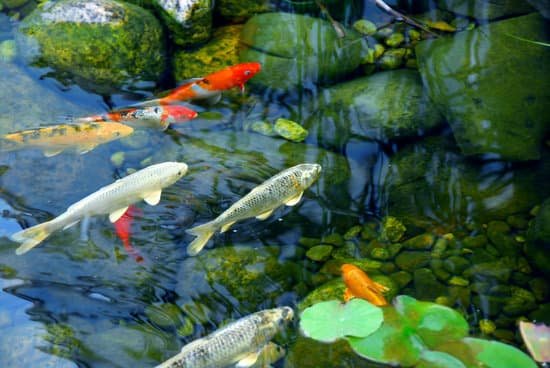Introduction
Koi fish, with their enchanting colors and graceful presence, are more than aquatic companions; they are living artworks that require meticulous care. To maintain their vibrancy and well-being, understanding their nutritional needs and adopting proper feeding practices is essential. In this comprehensive guide, we will explore the world of Koi fish nutrition, diving into the key nutrients and feeding techniques that will help you ensure the health and beauty of your cherished fish.
Crucial Components of Koi Nutrition
The foundation of a healthy Koi diet lies in its balance. Koi are omnivores, requiring a mix of proteins, carbohydrates, fats, vitamins, and minerals for optimal health. A well-rounded diet is not only essential for growth but also for maintaining their immune system, energy levels, and vibrant colors.
Proteins: Building Blocks for Growth
Proteins are the cornerstones of growth and vitality in Koi fish. Incorporating high-quality protein sources such as fish meal, shrimp, and insects into their diet provides the necessary amino acids for muscle development and overall well-being. For young Koi, protein intake is especially important to support their rapid growth. Why Collect Vintage Michael Jordan Sneakers? Mike Savage
Carbohydrates: Sustaining Energy
Carbohydrates provide the energy Koi need for their daily activities. Carbohydrate-rich sources like wheat germ and rice bran offer sustained energy levels. However, striking the right balance is crucial, as an excess of carbohydrates can lead to digestive issues.
Fats: Essential for Health
Healthy fats, particularly those containing Omega-3 fatty acids, play a vital role in Koi fish health. These fats promote immune response, skin health, and color enhancement. During colder months, when Koi's metabolism slows, these fats become a critical energy source.
Vitamins and Minerals: Holistic Well-being
Vitamins and minerals are the keys to holistic Koi health. Vitamin C boosts their immune system and helps in wound healing, while minerals like calcium contribute to bone development. A well-formulated Koi diet includes a balanced blend of these micronutrients.
Enhancing Natural Colors
The vibrant colors of Koi fish are a source of wonder and admiration. To enhance and intensify these colors, incorporate carotenoid-rich foods such as spirulina and krill into their diet. These natural pigments bring out the vivid reds, oranges, and yellows that make Koi so captivating.
Feeding Practices for Optimal Health
Feeding your Koi requires a balance between nourishment and moderation. Koi are hearty eaters, but overfeeding can lead to health issues and water quality problems. It's recommended to feed smaller portions multiple times a day, ensuring they consume the food within a few minutes.
Seasonal Adjustments
As the seasons change, so do the nutritional needs of Koi. During colder months, their metabolism slows, and they require less food. In warmer months, their increased activity and metabolic rate necessitate a diet higher in protein and energy to support their growth.
Observation and Care
Regular observation is vital to Koi fish care. Monitor their behavior, appetite, and coloration. Any sudden changes can indicate underlying issues that need attention. By staying attentive to your Koi, you can address potential problems early and ensure their ongoing health and happiness.
Conclusion
Feeding your Koi fish is a responsibility that goes beyond simply providing sustenance. It's about nurturing their health, enhancing their natural beauty, and creating an environment where they can thrive. By offering a balanced diet rich in proteins, carbohydrates, fats, vitamins, and minerals, and by adopting proper feeding techniques, you can ensure that your Koi fish flourish, radiating their vibrant colors and graceful movements in your aquatic sanctuary.





Comments